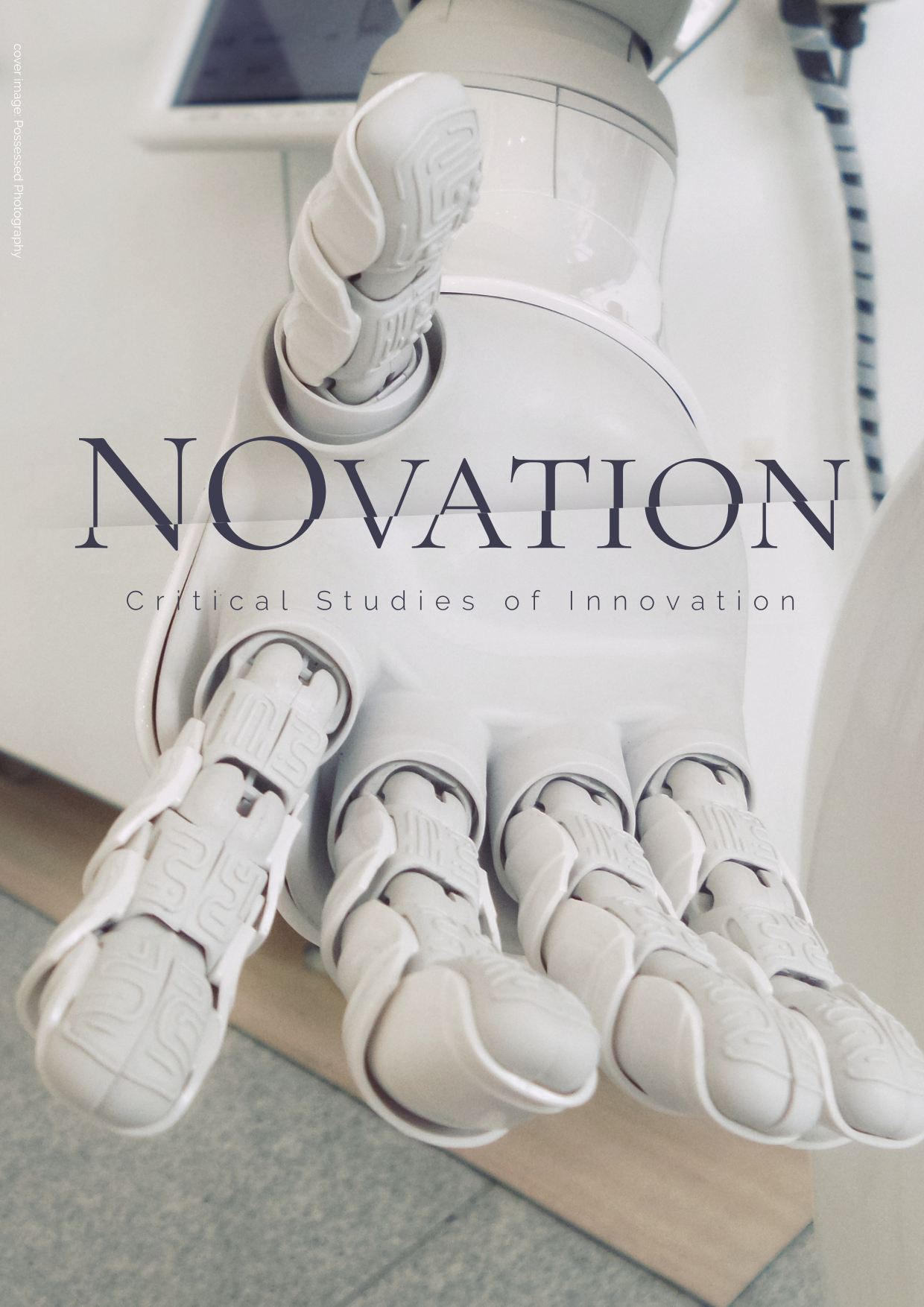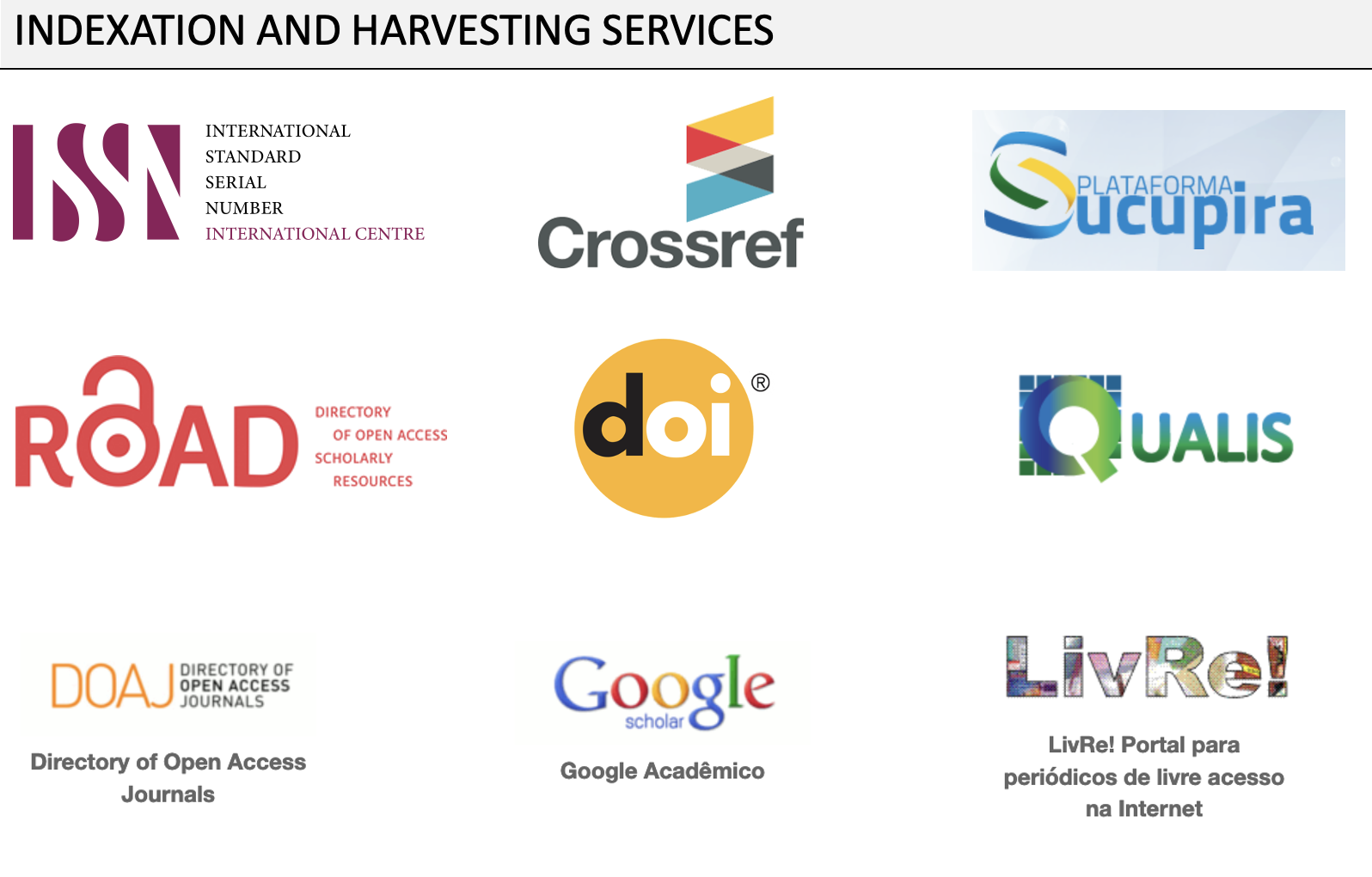I bet you don’t look good on the dance floor: Re-examining the innovation policy dance metaphor in the case of Colombia
DOI:
https://doi.org/10.5380/nocsi.v0i5.93601Keywords:
Innovation Policy, Governance, Innovation Heuristics, Interactive Learning, ColombiaAbstract
Innovation heuristics offer guidance on how to navigate through the complex dynamics of innovation governance. However, further discussion is needed on the premises of such analytical tools to inquire on their implications on innovation policy and practice. This paper builds on the innovation policy dance metaphor to better grasp the ever-changing interplays (or dance) between innovation practice (I), policy (P) and theory (T). We critically assess the basic underlying assumptions of this metaphor, by examining the extent to which its heuristic pretensions are relevant in the Latin American context. To do so, we explore three illustrative cases in Colombia, shedding light on some crosscutting opportunities and gaps for the dancing metaphor across different innovation I-P-T situations. Some derived lessons suggest that dancing occurs within and/or between different governance levels, where variables such as politics shape the innovation I-P-T interplay and time defines first and second order learning pathways.
References
Argyris, C., & Schön, D. (1978). Organizational Learning: A Theory of Action Perspective. Reading: Addison-Wesley Publishing Company.
Arocena, R., & Sutz, J. (2020). The need for new theoretical conceptualizations on National Systems of Innovation, based on the experience of Latin America. Economics of Innovation and New Technology, 29(7), 814-829. https://doi.org/10.1080/10438599.2020.1719640
Bauchspies, W.K., Croissant, J. y Restivo, S.P. (2006). Science, technology, and society: a sociological approach. Blackwell Pub., Malden, MA.
Centeno, J. P. (2019). La “territorialización” de la ciencia: una reflexión crítica de los seis años de funcionamiento del Fondo de Ciencia, Tecnología e Innovación, del Sistema General de Regalías. In C. Soto (Ed.), Seguimiento y análisis de políticas públicas en Colombia. 2018 (p. 89-113). Bogotá: Universidad Externado de Colombia. https://publicaciones.uexternado.edu.co/pageflip/acceso-abierto/pdf/seguimiento-y-analisis-de-politicas-publicas-en-colombia-uext.pdf
Centeno, J. P. (2021). Operational Innovation Policies in Emerging Economies: A Social Network Analysis of the Royalties Fund for Innovation in Colombia. In G. Ordóñez-Matamoros, L. A. Orozco, J. H. Sierra-González, I. Bortagaray, & J. Garcías-Estévez (Eds.), Policy and Governance of Science, Technology, and Innovation. Palgrave Studies in Democracy, Innovation, and Entrepreneurship for Growth (p. 193-232). Palgrave Macmillan. https://doi.org/10.1007/978-3-030-80832-7_6
Centeno, J. P., Delgadillo, S., & Roa, M. P. (2020). Ciencia, tecnología e innovación durante el primer año del gobierno Duque: análisis y seguimiento a sus principales hitos. Seguimiento y Análisis de Políticas Públicas. Anuario 2020 (p. 65-81). Bogotá: Universidad Externado de Colombia https://publicaciones.uexternado.edu.co/media/anuario2020.pdf#page=65
Crespi, G., & Dutrénit, G. Eds. (2014). Science, Technology and Innovation Policies for Development. The Latin American Experience. Switzerland: Springer.
De Oliveira Monteiro, S. P., & Carayannis, E. G. Eds. (2017). The Quadruple Innovation Helix Nexus. A Smart Growth Model, Quantitative Empirical Validation and Operationalization for OECD Countries. Palgrave Macmillan.
de Solla Price, D. J. (1965). Is Technology Historically Independent of Science? A Study in Statistical Historiography. Technology and Culture, 6(4), 553-568. https://doi.org/10.2307/3101749
de Solla Price, D. J. (1984a). Notes Towards a Philosophy of the Science/Technology Interaction. In R. Laudan (Ed.), The Nature of Technological Knowledge. Are Models of Scientific Change Relevant? (Vol. Sociology of the Sciences Monographs, p. 105-114). Dordrecht: Springer. https://doi.org/10.1007/978-94-015-7699-4_6
de Solla Price, D. J. (1984b). The science/technology relationship, the craft of experimental science, and policy for the improvement of high technology innovation. Research Policy, 13(1), 3-20. https://doi.org/10.1016/0048-7333(84)90003-9
Dutrénit, G., & Sutz, J. Eds. (2014). National Innovation Systems, Social Inclusion and Development. The Latin American Experience. Northampton: Edward Elgar.
Edquist, C. (1997). Systems of Innovation. Technologies, Institutions and Organizations. London: Frances Pinter.
Freeman, C. (1987). Technology and Economic Performance: Lessons from Japan. London: Frances Printer.
Glaser, B., & Strauss, A. (1967). The Discovery of Grounded Theory: Strategies for Qualitative Research. Chicago: Aldine.
Jessop, B. (2012). Social imaginaries, structuration, learning, and collibration: their role and limitations in governing complexity. Zarządzanie Publiczne, 19(1), 71-83.
Kuhlmann, S. (2007). Governance of innovation: Practice, policy, and theory as dancing partners. Address delivered upon the acceptance of the Chair Foundations of Science, Technology and Society. Enschede: Faculty Management and Governance, University of Twente.
Kuhlmann, S., & Ordóñez-Matamoros, G. (2017). Research Handbook on Innovation Governance for Emerging Economies. Towards Better Models. Edward Elgar Publishing Ltd.
Kuhlmann, S., Shapira, P., & Smits, R. (2010). Introduction. Systemic Perspective: The Innovation Policy Dance. In R. Smits, S. Kuhlmann, & P. Shapira (Eds.), The Theory and Practice of Innovation Policy. An International Research Handbook (p. 1-22). Cheltenham, UK: Edward Elgar.
Lundvall, B.-Å. (1992). National Systems of Innovation: Towards a Theory of Innovation and Interactive Learning. London: Frances Pinter.
Merton, R. K. (1968). The Matthew effect in science. the reward and communication systems of science considered. Science, 159, 56-63.
Moncayo Jiménez, E. (2018). Las políticas regionales de ciencia, tecnología e innovación en Colombia: surgimiento, evolución y balance de la situación actual. Opera, 23, 185-208. https://doi.org/10.18601/16578651.n23.11
Nelson, R. (1993). National innovation systems: a comparative analysis. Oxford: Oxford University Press.
Pinzón-Camargo, M. A. (2022). Navigating Inclusive Innovation: The role of Institutional Entrepreneurs in Inclusive Innovation Initiatives. Enschede: University of Twente. https://doi.org/10.3990/1.9789036553360
Pinzón-Camargo, M. A., & Centeno, J. P. (2020). Políticas de innovación inclusiva y tensiones en torno a su implementación y evaluación en Colombia: el caso de ‘A Ciencia Cierta’. Opera, 28, 139-167. https://doi.org/10.18601/16578651.n28.07
Pinzón-Camargo, M. A., & Ordóñez-Matamoros, G. (2021). A Study of Innovation Policies and Governance Structures in Emerging Economies Under the Path-Dependence Framework. The Case of Colombia. In G. Ordóñez-Matamoros, L. A. Orozco, J. H. Sierra-González, I. Bortagaray & J. Garcías-Estévez (Eds.), Policy and Governance of Science, Technology, and Innovation. Palgrave Studies in Democracy, Innovation, and Entrepreneurship for Growth (p. 147-190). Palgrave Macmillan.
Rip, A. (1992). Science and Technology As Dancing Partners. In P. Kroes, & M. Bakker (Eds.), Technological Development and Science in the Industrial Age. New Perspectives on the Science-Technology Relationship (Vol. Boston Studies in the Philosophy of Science, p. 231–270). Dordrecht: Springer. https://doi.org/10.1007/978-94-015-8010-6_10
Salazar, M. (2013). Gobernabilidad del SNCyT: El papel de los consejos de programas nacionales de ciencia y tecnología. In M. Salazar, M. Lozano-Borda, L. Fog & F. Sagasti (Eds.), Colciencias cuarenta años: Entre la legitimidad, la normativad y la práctica (p. 588-633). Observatorio de Ciencia y Tecnología (OCyT).
Salazar, M. (2017). The Colombian system of science, technology and innovation in transition: how governance is being affected. In S. Kuhlmann & G. Ordóñez-Matamoros, Research Handbook on Innovation Governance for Emerging Economies. Towards Better Models (p. 232-264). Cheltenham, UK: Edward Elgar.
Downloads
Published
How to Cite
Issue
Section
License
Copyright (c) 2023 Juan Pablo Centeno, Mario A. Pinzón-Camargo

This work is licensed under a Creative Commons Attribution-NonCommercial-ShareAlike 4.0 International License.
NOvation is an open-access journal under a Creative Commons – CC Attribution-NonCommercial-ShareAlike 4.0 license, which allows others to share the work with an acknowledgement (and preservation) of the author's authorship and intellectual property rights.
To this extent, the authors who publish in this journal agree with the following terms:
1. Authors retain the rights and grant the journal the right of first publication, with the work published under the Creative Commons – CC Attribution-NonCommercial-ShareAlike 4.0 that allows [...].
2. Authors have authorization for distribution, of the version of the work published in this journal, in an institutional repository, thematic, databases and in other works as a book chapter, with acknowledgement of authorship and initial publication in the journal;
3. Papers published in this journal will be indexed in databases, repositories, portals, directories and other sources in which the journal is and will be indexed.
Ethical Responsibilities of Authors
This journal is committed to upholding the integrity of the scientific record.
Consent to submit has been received explicitly from all co-authors, as well as from the responsible authorities – tacitly or explicitly – at the institute/organization where the work has been carried out, before the work is submitted.





